YOUTH WORKERS IN BiH
The May issue of the youth worker series from Bosnia and Herzegovina takes us to Ljubljana, the capital of Slovenia, to talk to Amar Toplić, a youth worker who started his formal education at the University of Banja Luka, studying social work. While at university, Amar went on student exchanges to Montenegro, Slovenia and in Sarajevo. He fondly remembers his road from Čelinac and Banja Luka to Ljubljana, and his first foray into youth work.
“My road was different from most youth workers, in that it was mostly “unwanted” in a way. In elementary school, I preferred to solve conflicts with my fists rather than words. These proclivities landed me in a non-violent communication training run by the Social Work Center in Čelinac, where I went to school. It was this training that introduced me to the world of youth work. For the first few months, I was an unwilling participant, but then I started volunteering in the local center for children, and got involved in the work of the local youth center where I worked as a project assistant and managed some daily activities. In time, this became a calling that chose me, instead of the other way around. Today I’m proud to say I am a child of youth work. Without youth work, I honestly don’t know where I would be today, I don’t even want to think about it. Our social worker at the time was a little more strict than the average youth worker today, but to me she was more of a youth worker than a social worker, and she has my gratitude”, says Amar, starting his story.
He is one of the young people who decided to leave BiH, and he moved to Slovenia for two reasons.
“The first reason is that my faculty in Banja Luka did not recognize the exams I took during my semester abroad. I was forced to repeat that year, which made me lose the scholarship that made education possible for me. That really hurt me and made me angry. Ljubljana had a study program focusing on social work with youth, so I decided to move there. The second reason is street youth work – a type of youth work that’s practiced in Slovenia but not in Bosnia and Herzegovina”, says Amar.
Amar spent nearly a decade doing youth work in BiH and before he continued doing the same in Slovenia, so we asked him to compare the youth sectors in these two countries.
 ”It’s strange to compare, since the contexts are completely different, but I’d like to start with similarities. I think Slovenia and BiH face similar problems in the youth sector, one of them being that competent ministries are not always willing to listen. But, Slovenia has the advantage here, because it’s easier to reach an agreement and the youth sector is an important part of the society. If you want to reach an agreement with decision makers, you don’t have to talk to 14-15 government, each with their own set of demands. I’d say that the centralization is better in Slovenia, things are better coordinated. Also, youth work entails more than it does in BiH, and I particularly like that people know what you mean when you tell them you’re a youth worker. There are three biggest differences, and the first one is that inter-sectoral cooperation is much better in Slovenia. People often consult us as youth workers. The second biggest difference is the Erasmus+ program, and I have to emphasize this. There’s a huge difference between program and partner countries in the Erasmus+ program. Slovenia is a program country with its own national agency and without an intermediary, which means easier access to more programs. For example, last year my organization had 13 international partnerships for youth work exchange programs. That means that almost every month some of my colleagues visit other countries to learn about their youth work practice. The third difference is transparency, and I think Slovenia does a better job with this. Still, there are things that BiH does better. For example, there’s the network of organizations and youth workers called the Alumni network of expert youth work associates coordinated by KULT”, says Amar.
”It’s strange to compare, since the contexts are completely different, but I’d like to start with similarities. I think Slovenia and BiH face similar problems in the youth sector, one of them being that competent ministries are not always willing to listen. But, Slovenia has the advantage here, because it’s easier to reach an agreement and the youth sector is an important part of the society. If you want to reach an agreement with decision makers, you don’t have to talk to 14-15 government, each with their own set of demands. I’d say that the centralization is better in Slovenia, things are better coordinated. Also, youth work entails more than it does in BiH, and I particularly like that people know what you mean when you tell them you’re a youth worker. There are three biggest differences, and the first one is that inter-sectoral cooperation is much better in Slovenia. People often consult us as youth workers. The second biggest difference is the Erasmus+ program, and I have to emphasize this. There’s a huge difference between program and partner countries in the Erasmus+ program. Slovenia is a program country with its own national agency and without an intermediary, which means easier access to more programs. For example, last year my organization had 13 international partnerships for youth work exchange programs. That means that almost every month some of my colleagues visit other countries to learn about their youth work practice. The third difference is transparency, and I think Slovenia does a better job with this. Still, there are things that BiH does better. For example, there’s the network of organizations and youth workers called the Alumni network of expert youth work associates coordinated by KULT”, says Amar.
While in formal education, he gave equal attention to non-formal education as well. In 2018, he took part in a training for expert youth work associates organized and implemented by the Institute for Youth Development KULT with the support of the Olof Palme International Centre. Amar has fond memories of the training and other participants.
“One of the reasons the training was helpful to me was the people, all the individual experiences I got to hear. Between modules, we all conducted different activities in our communities, and during the modules we shared our experience and got feedback from other participants. The second important thing is the content of the training modules. I already knew a lot of the things we learned since I was already engaged in youth work before the training, but the training helped me fill some gaps and shape my knowledge into a cohesive structure. Sometimes I got weird looks from people in Ljubljana when I tell them I know how to make communication plans for organizations, or something along those lines. The third advantage is, of course, direct contact with KULT. For me, KULT is a pillar of youth work, and I know I can rely on them for information or a referral to someone who has the information I need, and that means a lot to me. Which brings us back to people from this training. Trainers Katarina and Mirela, and other participants, were the wind in my sails on my way to live my dream and do street youth work. There was about fifteen of us, but we represent the entire country. It’s a network of people that I still work with today”, says Amar when asked about his experience with the training.
After completing the training, Amar was awarded an expert youth worker certificate. He says he’s proud of this certificate that let to many opportunities for him, even in Slovenia. The certificate formalized what he’s been doing for years.
“Even though you read about it, and other people call you a youth worker, you don’t understand what that means until you actually feel it. I felt it for the first time when I realized that I’m one of those people who help young people live up to their potential and make their ideas come true.”
Amar is now a youth worker in Ljubljana, and works for the European Solidarity Corps. He spends half his time in the youth center and the other half in the streets, parks, playgrounds, cafes, and wherever there are young people. He gets there on foot, bike or takes a bus. Amar does street youth work with young people. The organization he works for combines several approached: outreach, street youth work and detached youth work. Amar says street youth work is full of surprises, and no two days are alike. He dreams of someday seeing youth workers in BiH using this approach in their work with BiH youth.
Given the current situation with COVID-19, Amar isn’t sure what the future will bring. Although he now lives in Slovenia, it seems like he never really left BiH.
“Every time I leave BiH, I always plan to come back. Even when I was leaving bitter, because I was forced to, I still wanted to come back. I honestly don’t know if this situation will change, but I do know that the things I saw here I want to see in BiH as well. It doesn’t really matter that much where I am, but it’s important to me that my youth work somehow connects me with BiH”, says Amar.
Amar ends his story with a message to young people, inviting them to shake a leg and get into something new.
“You never know what you can learn, find out and see if you just leave your comfort zone a little bit, and take one step away from what you’re used to. Dare to try something new, even if it means just going to your local youth center and asking: “What’s up? What do you have going on today?” And never underestimate the power of youth work, because youth work is powerful like a river – it can flow through rocks”, says Amar.



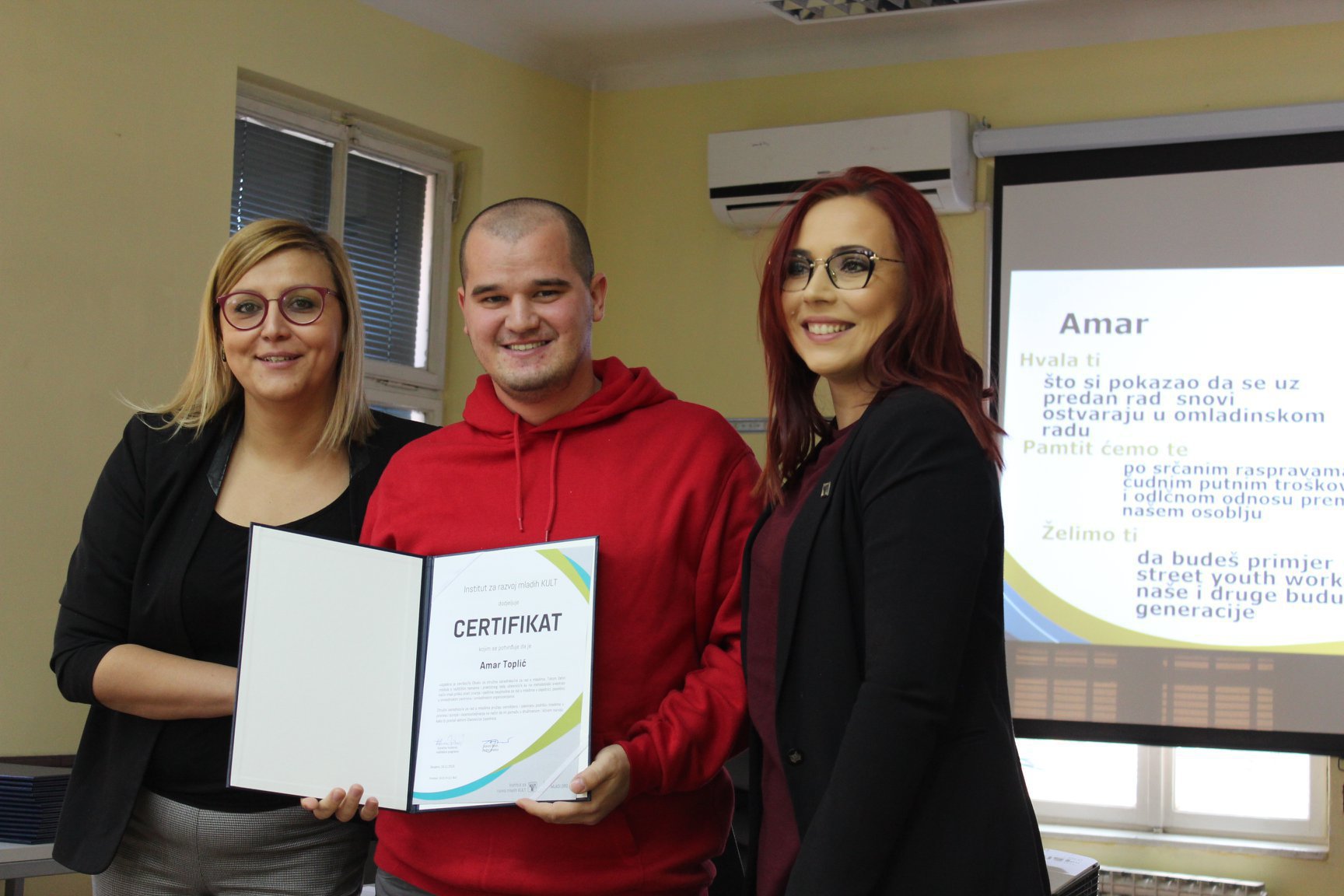
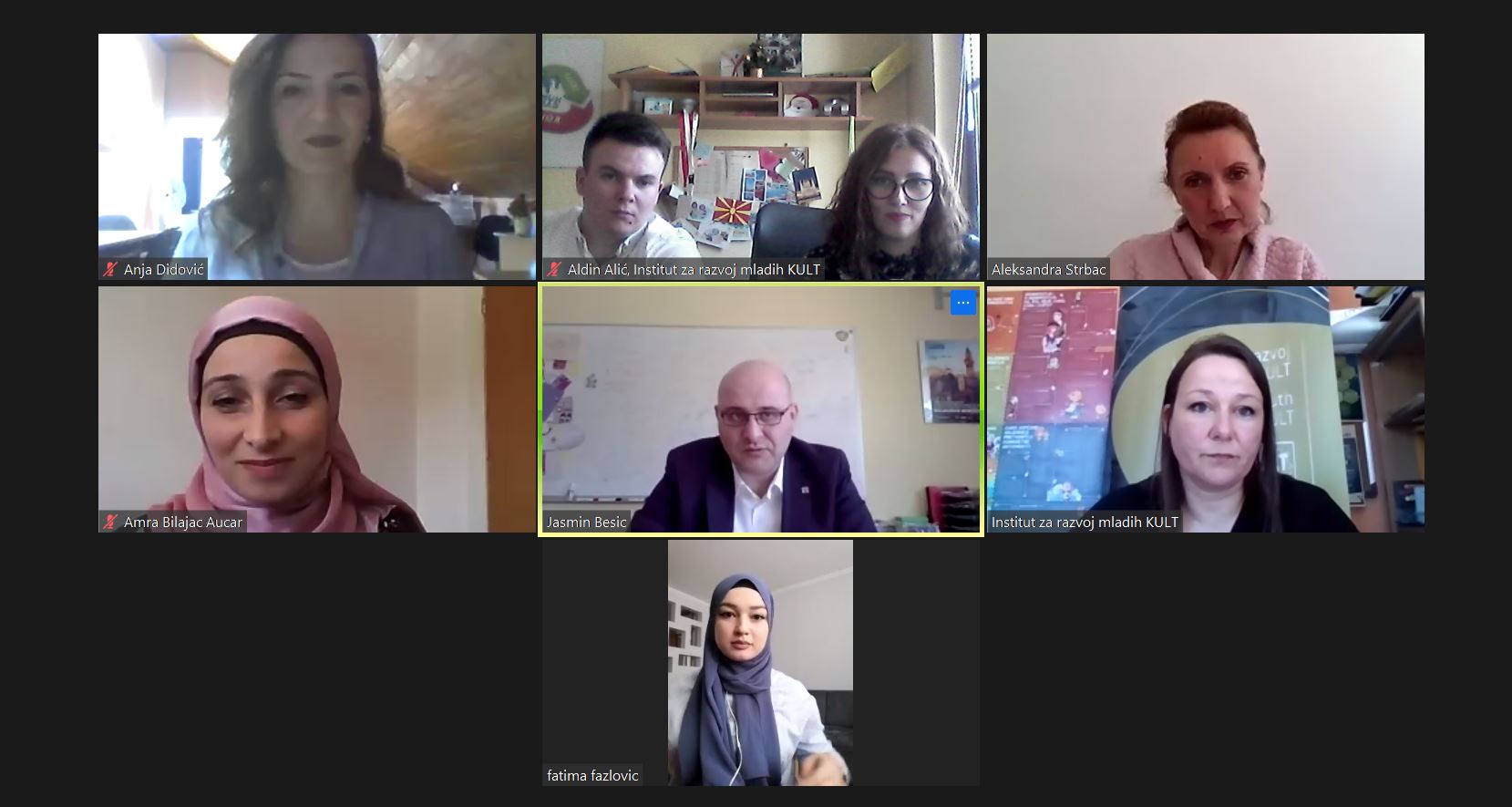







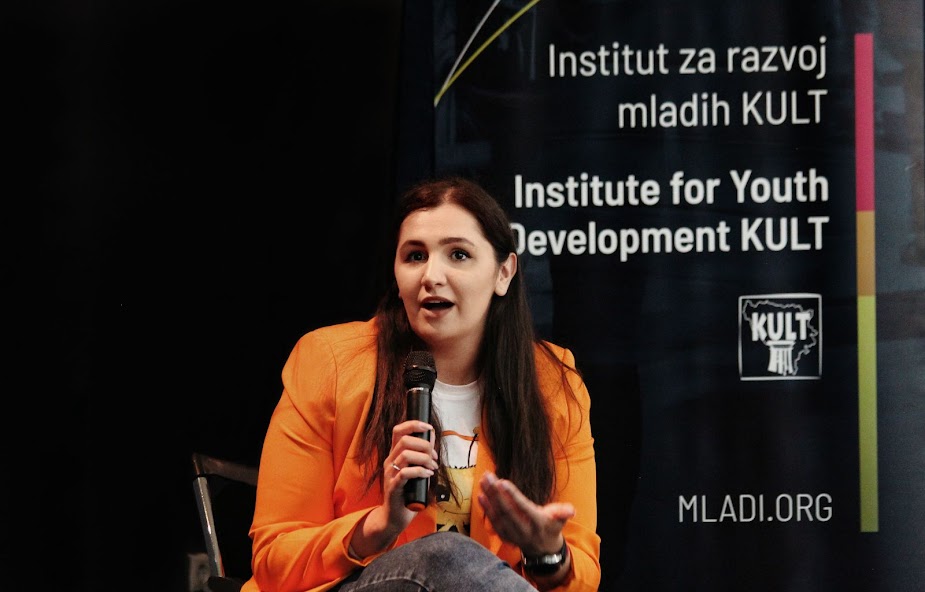
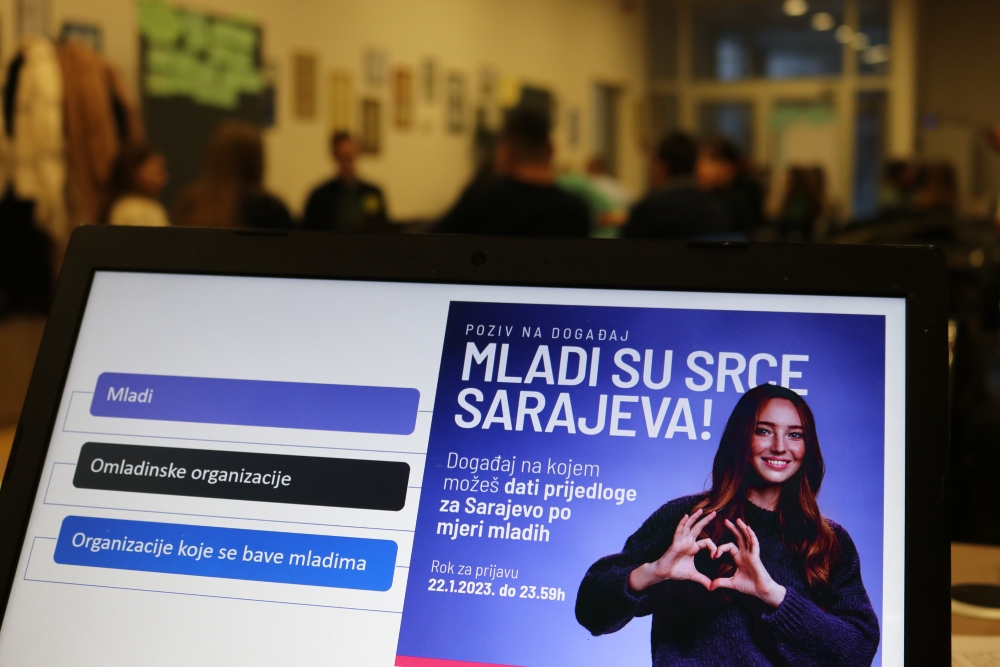
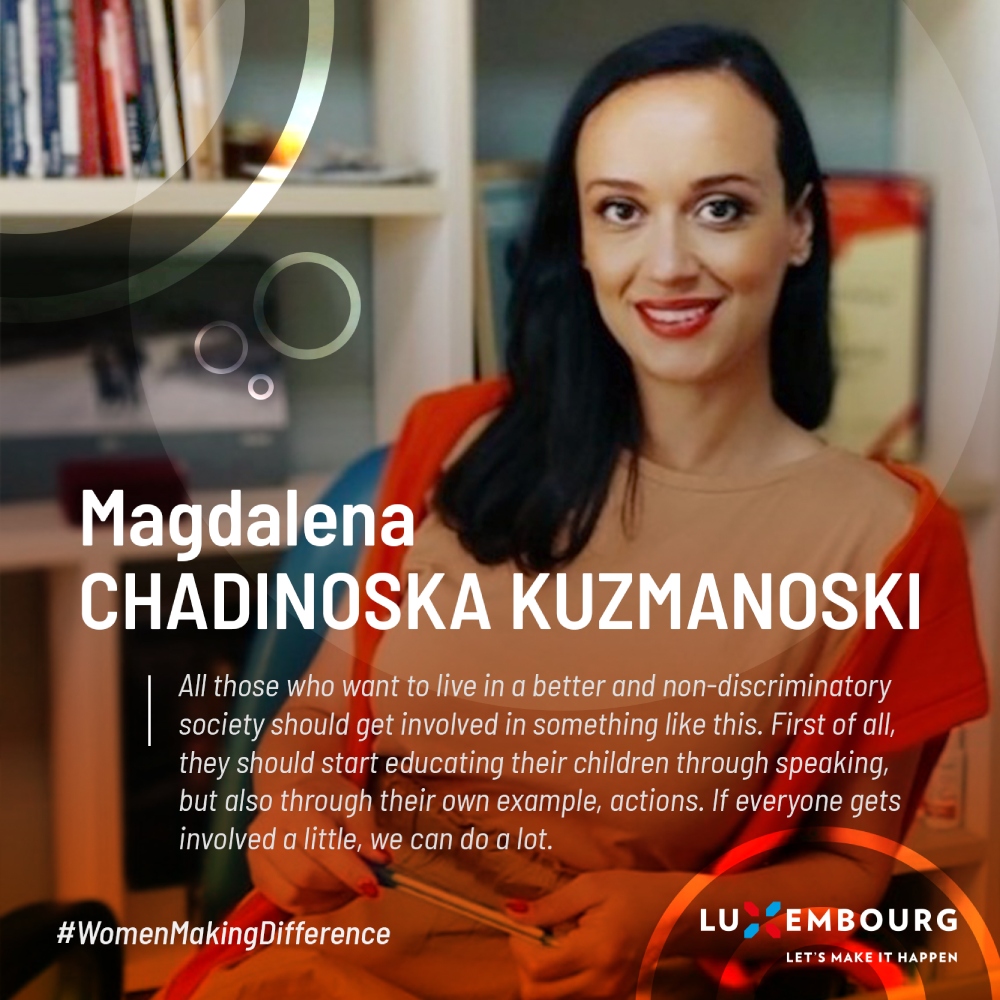
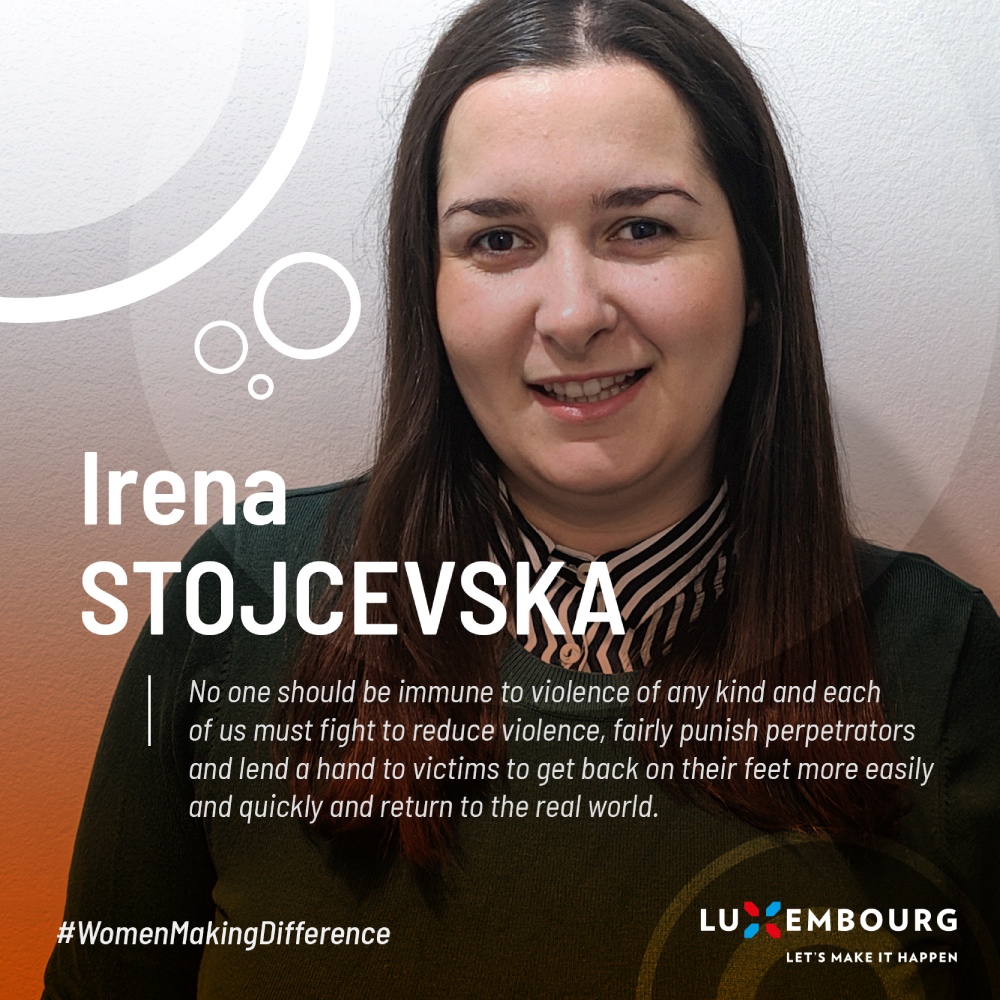
Leave a comment